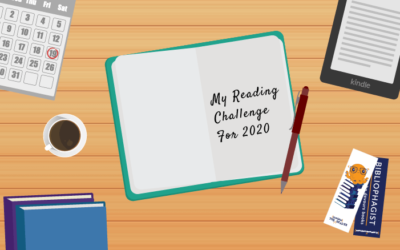Essay
What I Learnt From Failing At A Writing Challenge

Devanshi Jain
November 01, 2018
A few years ago, a friend and I attempted a writing challenge- we promised each other that we’d write every day for 40 days. Unimaginatively called “Forty Days Of Writing”, the rules for the writing challenge were simple:
- Write every day and send whatever you have written as an email. It could be anything- a short story, a thought, an idea, some seemingly irrelevant life event. However, it could not be an article (copied from elsewhere) or the lyrics of a song already sung by someone else.
- It could be just 100 words or 10,000 words long. It was the quality that mattered. You couldn’t just say “Hi. I am running late. Can’t email more today.” You had to share something original or write one thing about your day.
I found the challenge cathartic and revelatory. I wrote about my grandmother, churned out two and a half short stories, and wrote many reflections on topics that mattered to me. I mused on why there are so many weather-based metaphors and the plural of mongoose. I wrote about my experience backpacking solo around India and the kindness of strangers I experienced along the way. I reflected on the books I read- Elif Shafak’s The Forty Rules Of Love led to a long piece on love and relationships while A Blue Hand led to an exploration on India in the 60s and 70s and why it attracted the Beatles. I even wrote about not wanting to write.
Perhaps, the greatest revelation was how much I enjoyed it and how much it pushed me to be creative. Never in my life had I expected to be able to write fiction. While the first few days were stressful, I knew that pushing past them was imperative. I had to fight the Resistance. Once I did get over the hump, which was about a week in, the hours spent writing were perhaps my favourite time of the day. I wrote despite having spent the entire day working on editing a book; I wrote despite having a house filled with guests and family. I wrote whenever I could- early in the morning or late at night. It became a necessity and it soothed me.
Unfortunately, we didn’t end up completing the challenge. My friend stopped writing after six days it though I did manage to last 21 days. However, I don’t consider it a failure for one simple reason: it showed me the power and importance of writing every day.
Here’s what I learnt from failing at a writing challenge:
- Community is important: The only reason I lasted 21 days was that it was a challenge. However, the reason I didn’t go beyond the 21 days was the lack of accountability. Accountability helps you push past barriers you don’t think you can overcome. It gives you a reason to go on and it is also why a community of like-minded writers striving to build a habit and becoming better at the craft is so important.
- Practice matters: You need to build your writing muscle. Just like going to the gym requires you to push past the initial pain, you need to get over the initial Resistance and the only way to do that is to write consistently. No matter what. It doesn’t matter how your day has been or how tired you are. You must write if you want to be a writer. That’s what separates amateurs from professionals.
- Quality doesn’t matter: How well you write is irrelevant for the purpose of building a habit. It could be the most disjointed piece of writing or it could be the best story you’ve ever written. What matters is that you’ve written something. One of the reasons people fail to write is that they worry about the quality of what comes out. Of course, you should hone your craft but if you don’t write badly first, you’ll probably never write again. The ‘shitty first draft’ is a critical part of the process.
- Quantity matters: If you write every day, you are bound to become better. Compare what you wrote on day 1 to what you wrote on day 30, and you will see a marked improvement. Write 1000 words a day and you have 365,000 words at the end of the year. That’s a novel. In 3 days, you have a legit short story.
- There is no such thing as writer’s block: If you write every day, you will come to realise that writer’s block is simply your mind throwing up Resistance. When I was stuck, I wrote about not wanting to write and ended up writing about 1000 words on different topics. Another time, I looked up the aptly named The Writer’s Block, a book full of prompts designed to help you conquer writer’s block, and one of the prompts sparked the idea for a short story. As you build up your writing muscle, you will find that inspiration strikes more often and writer’s block will become an unpleasant memory. Of course, there will be times when you do find yourself stuck and, when you do, find prompts or seek help from a community of writers.
- Feedback: One mistake we made was that we didn’t incorporate an element of feedback into the writing challenge. Beyond the occasional, “I loved it”, we didn’t provide each other with any form of critical feedback. Constructive criticism is important if you want to become better at the craft. Being a writer means you have to develop a thick skin and take the feedback you are given and decide whether to incorporate it in your writing or discard it. Most importantly, don’t let it dissuade you from writing.
Find a friend and hold your own ‘Forty Days Of Writing’ style writing challenge or join a community of writers. Both will provide you with the support you need to write more and hone your craft. If you prefer to go at it alone, set up mechanisms to ensure that you are successful at building a habit of writing. Start a blog, take a course, go on a writing retreat– just make sure you do whatever it takes to write. Above all else, write. Write every day.
The Curious Reader and Bound have created a free 30-day programme to help you build a habit of writing. With daily prompts, inspirational quotes, educational articles, and masterclasses with experts, this free programme will help you write more and write better. Join us on Facebook and develop your writing habit.
The illustration includes elements designed by Iconicbestiary

Devanshi has been reading ever since she can remember. What started off as an obsession with Enid Blyton, slowly morphed into a love for mystery and fantasy. Even her choice of career as a lawyer was heavily influenced by the works of Erle Stanley Gardner and John Grisham. After quitting law, and while backpacking around India, she read books on entrepreneurship, taught herself web design and delved into social media marketing. She doesn’t go anywhere without a book.
She is the founding editor of The Curious Reader. Read her articles here.





